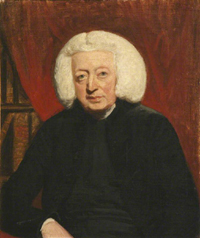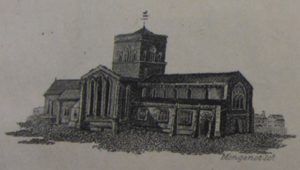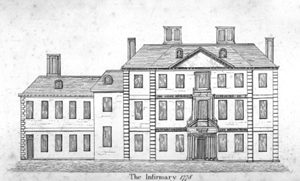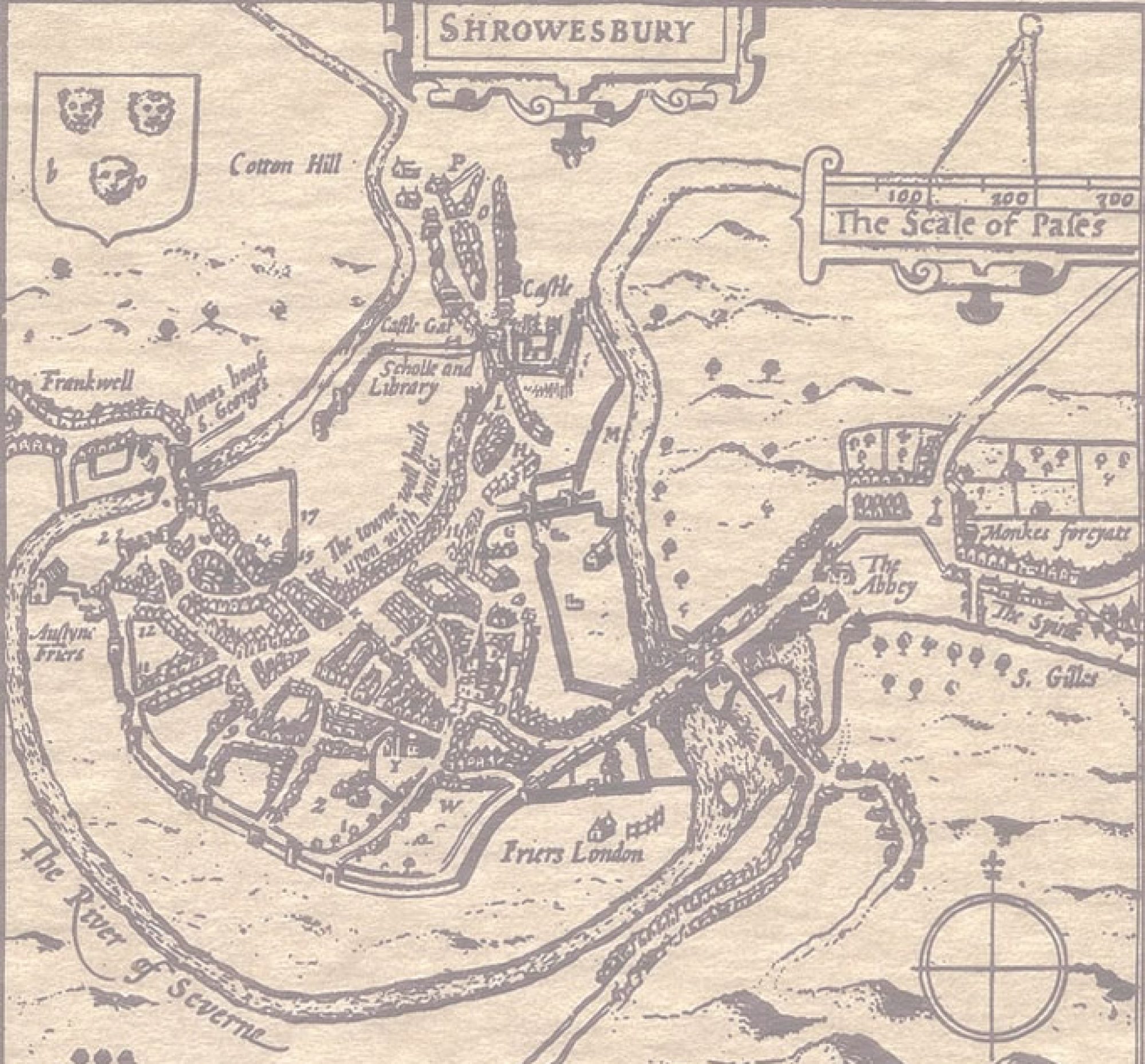
Adams Ridge, in the Belle Vue/Sutton Park area of Shrewsbury, is named after William Adams (1706-89), in his time a well-known academic and churchman. Adams was a native of Shrewsbury, his father John (1675-1752) being an alderman on the Corporation. [footnote 1] He went up to Pembroke College, Oxford, at the age of 13, graduating 7 years later and then becoming a Fellow and tutor at the college. One of the undergraduates at this time was Samuel Johnson (1709-84), who is perhaps best known for his pioneering English Dictionary. Johnson could only afford a year at the college; during this time his tutor was William Jorden, Adams’ cousin, through whom Adams met Johnson, and the two remained firm friends through life.

In 1732, Adams returned to Shrewsbury as Vicar of St Chad’s Church. This appointment was made despite his young age (26), the fact that he was a low churchman, and that he was also a Whig, while many of his parishioners were Tories. [footnote 2] Despite these disadvantages, he soon developed a reputation for his learning, humility, and concern for the less fortunate. [footnote 3] St Chad’s was the largest parish in the town, and was a very busy place. For example, in the six months from January to June 1738, there were 75 baptisms, 25 marriages and 68 burials, an enormous workload for the vicar, even with the help of curates. [footnote 4] In epidemics the numbers to be buried were colossal, for example on January 22nd 1823 27 people were lying dead in St Chad’s awaiting burial as a result of a smallpox epidemic. During the months of January and February that year there were a total of 76 interments at St Chad’s, 56 at St Mary’s, 28 at St Julian’s. [footnote 5]

William Adams’ concern for the less fortunate motivated him to be an active supporter of the foundation of the Salop Infirmary (opened in 1747). He wrote, ‘how shall love [for Jesus] be demonstrated? Not by secret musings alone; not by the chanting of religious sonnets alone… But by deeds of love towards those who in a real sense represent Him [Jesus], because they are partakers of our common humanity, which he condescended to assume.’ [footnote 6]
Adams became more widely known after 1751 when he published a sermon in response to a book by the philosopher and sceptic David Hume who sought to disprove miracles. An extended version of Adams’ sermon remained in print for many years, and he was particularly praised for writing ‘without sourness and bigotry’, as was so often the case in those days. [footnote 7] While not agreeing with Adams, Hume was grateful that his arguments were treated with courtesy, and Samuel Johnson’s biographer Boswell records that Adams ‘told me that he had once dined in company with Hume in London: that Hume shook hands with him, and said, “You have treated me much better than I deserve”; and that they exchanged visits.’ [footnote 8]
In 1775 Adams resigned from St Chad’s, having been unexpectedly elected Master of Pembroke College, Oxford. Despite his age (69) and the fact that he had been out of the academic world for 43 years, his time there was a great success. It was said that ‘he presided with universal approbation, and engaged the affections of the students by his courteous demeanour and affability, mixed with the firmness necessary for the preservation of discipline.’ [footnote 9]
Adams died in Gloucester at the age of 82, and there is a monument to him in Gloucester Cathedral.
Footnotes
[1] H Owen and JB Blakeway, A History of Shrewsbury,1825, Vol. II, pp.218 – 220; http://histfam.familysearch.org/getperson.php?personID=I116041&tree=Nixon, accessed 9.12.2013
[2] Owen and Blakeway, p.218-9
[3] Obituary by Alexander Chalmers, appendix to The General Biographical Dictionary, London, 1820, reproduced in http://en.wikipedia.org/wiki/William_Adams_(master), accessed 9.12.2013
[4] http://www.melocki.org.uk/salop/StChadShrewsburyPart2.html, accessed 7.1.2014
[5] Diary of Henry Pidgeon, SA 6001/3055
[6] http://en.wikiquote.org/wiki/William_Adams, accessed 9.12.2013
[7] Monthly Review, Jan 1752, vol. 6, pp.71-4; Early Responses to Hume’s Writings on Religion, edited by James Fieser, Google Books, accessed 3.1.2014
[8] Boswell, The Life of Samuel Johnson, LL. D., vol. 2, Fletcher, ed. Heritage Press (New York: 1963) p. 234
[9] Chalmers, op. cit.
